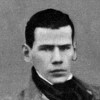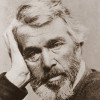“ Only in a world of sincere men is unity possible;—and there, in the long-run, it is as good as certain. For observe one thing, a thing too often left out of view, or rather altogether lost sight of in this controversy: That it is not necessary a man should himself have discovered the truth he is to believe in, and never so sincerely to believe in. ”
Thomas Carlyle, On Heroes, Hero-Worship, and The Heroic in History (1841). copy citation
| Author | Thomas Carlyle |
|---|---|
| Source | On Heroes, Hero-Worship, and The Heroic in History |
| Topic | unity controversy |
| Date | 1841 |
| Language | English |
| Reference | |
| Note | |
| Weblink | http://www.gutenberg.org/files/1091/1091-h/1091-h.htm |
Context
“has no power of sympathy even with things,—or he would believe them and not hearsays. No sympathy even with things; how much less with his fellow-men! He cannot unite with men; he is an anarchic man. Only in a world of sincere men is unity possible;—and there, in the long-run, it is as good as certain.
For observe one thing, a thing too often left out of view, or rather altogether lost sight of in this controversy: That it is not necessary a man should himself have discovered the truth he is to believe in, and never so sincerely to believe in. A Great Man, we said, was always sincere, as the first condition of him. But a man need not be great in order to be sincere; that is not the necessity of Nature and all Time, but only of certain corrupt unfortunate epochs of Time.”
source



